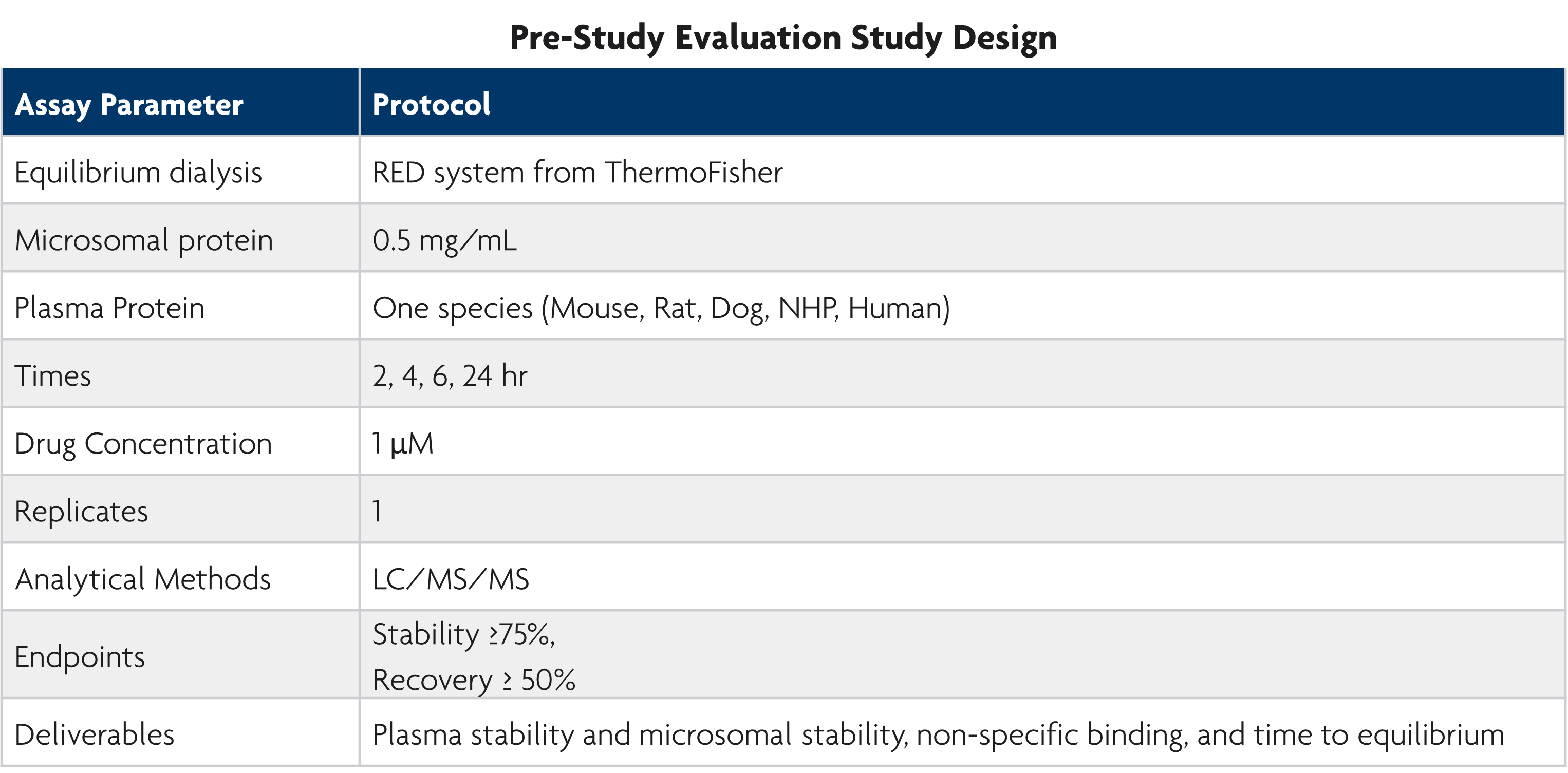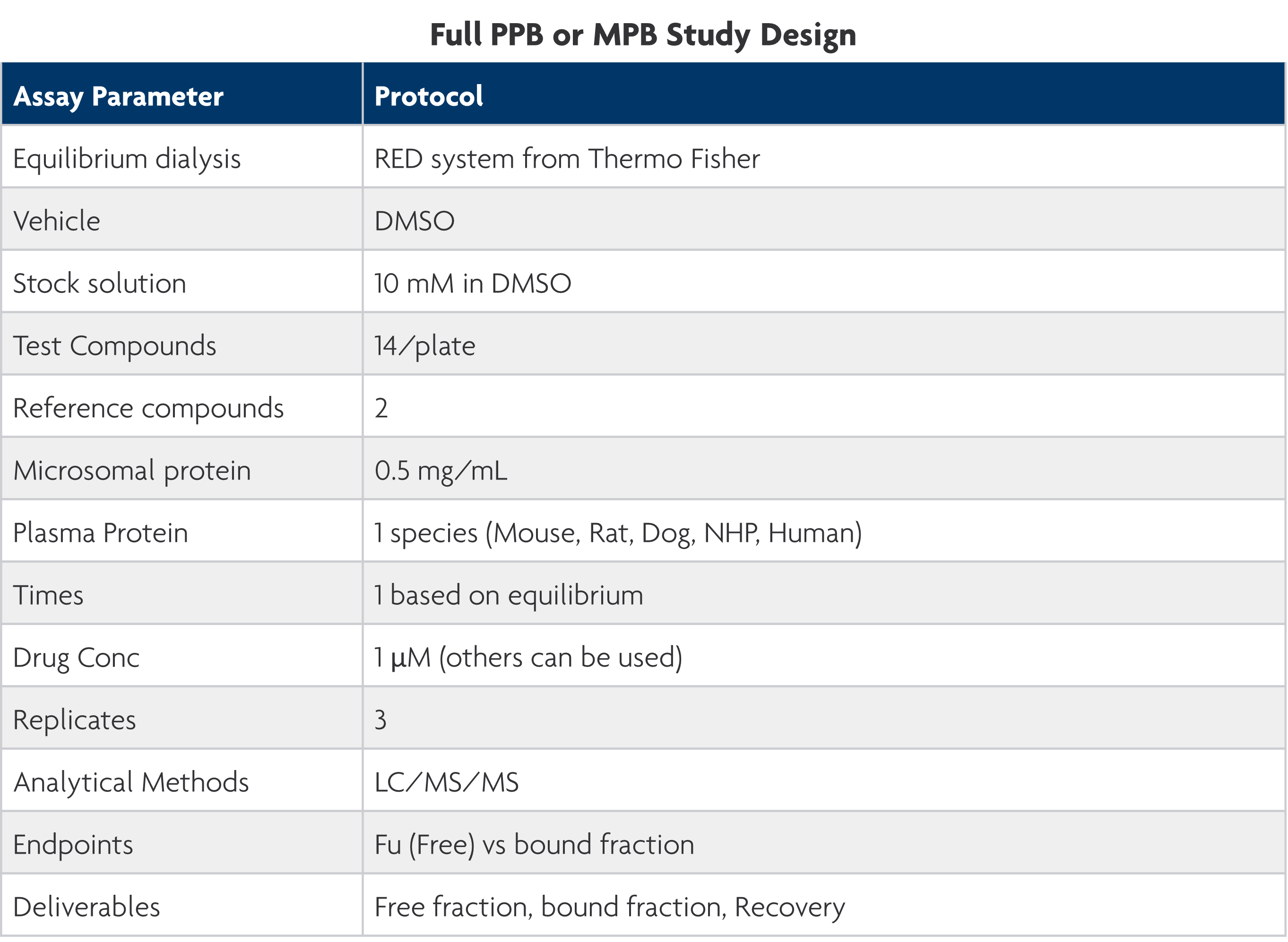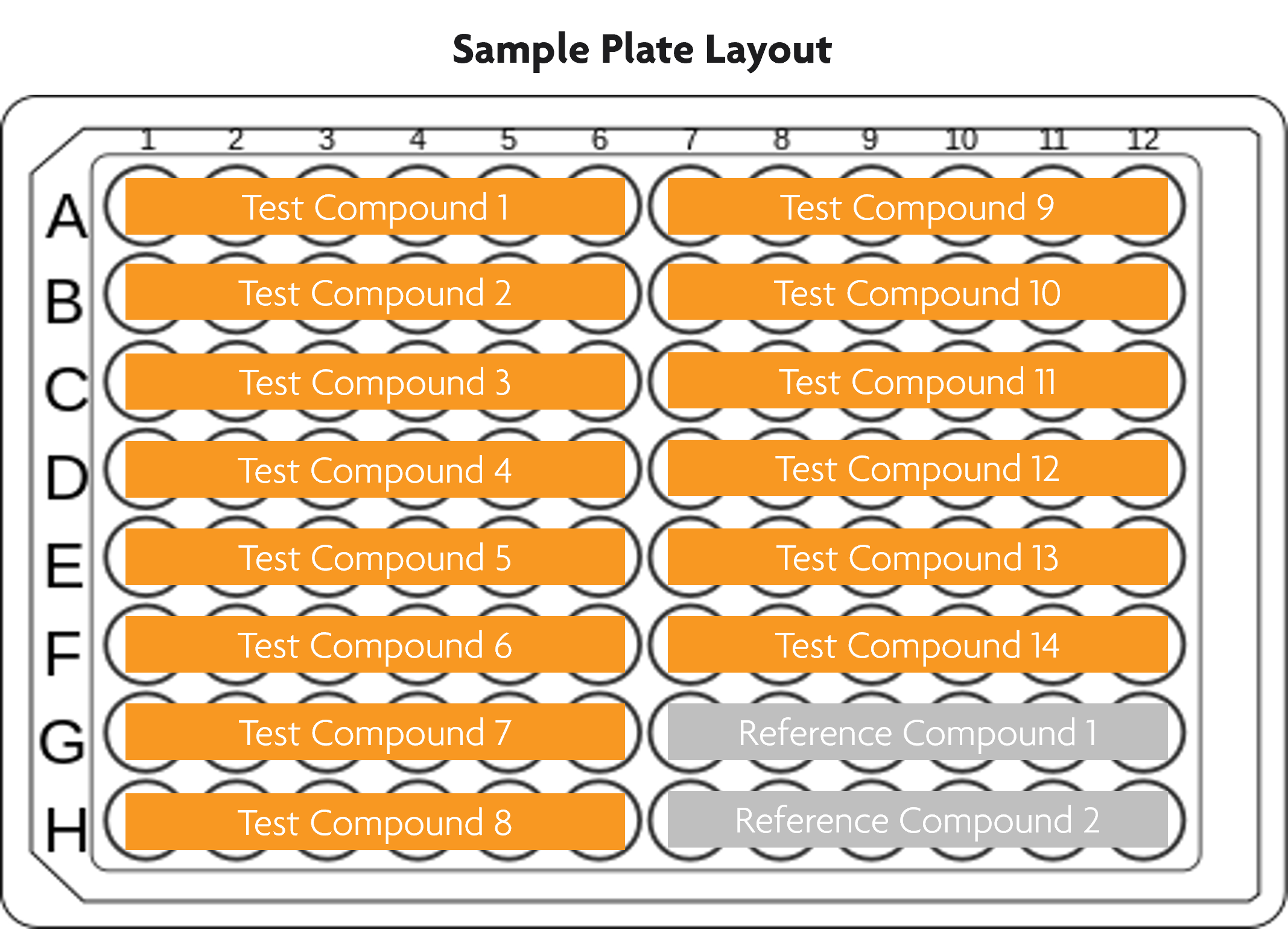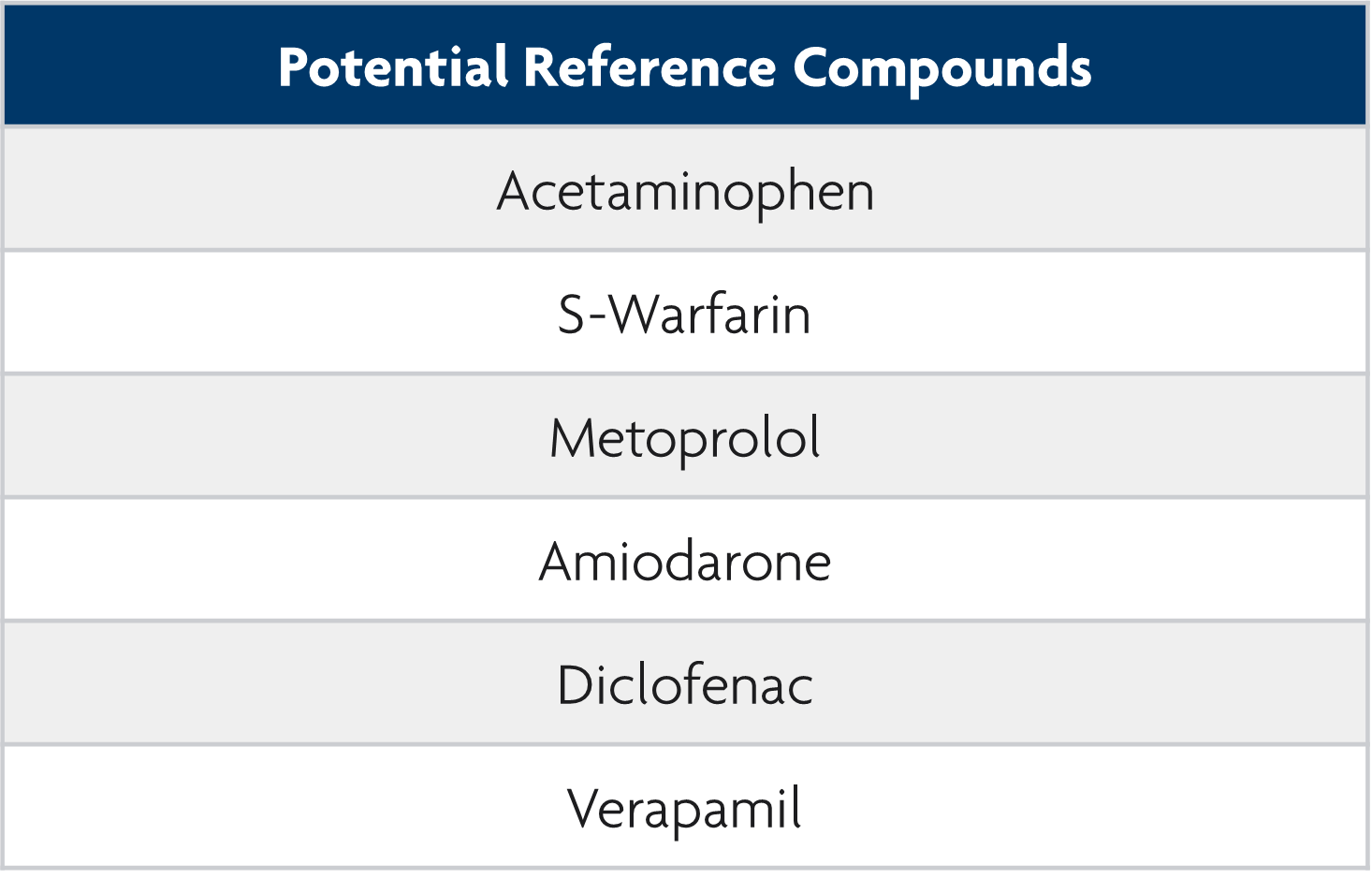Plasma and Microsomal Protein Binding Assay
In drug discovery, accurately predicting how a drug behaves in the human body is critical. Plasma protein binding (PPB) and microsomal protein binding (MPB) play essential roles in this process.
Why PPB Matters
- Drug availability: PPB regulates the amount of free drug circulating in the body. This directly impacts a drug's ability to reach its target and exert its effect.
- Predicting drug behavior: Understanding PPB allows scientists to predict factors like clearance, distribution, and potential interactions.
- Extrapolating in vitro to in vivo data: By comparing PPB in animals and humans, scientists can more accurately predict drug efficacy and safety, guiding first-in-human dose selection.
Microsomal Protein Binding: The DDI Factor
MPB is crucial for evaluating drug-drug interactions (DDI). Recent guidelines recommend measuring the unbound drug fraction (fu(mic)) to assess DDIs accurately. It is important to correct for non-specific binding in the in vitro microsomal stability assay. This unbound fraction directly impacts how efficiently the liver metabolizes the drug, influencing its overall clearance.
Your Partner in Protein Binding Studies
Our services team offers a standardized protocol for assessing both PPB and MPB. This ensures high-quality data with the speed and accuracy needed for early drug discovery. We provide study designs suitable for IND submissions and collaborate with you to tailor the study to your specific research needs.
Benefits of Our Services:
- Accurate and reliable data for informed decision-making
- Fast turnaround times to keep your drug development on track
- IND-enabling studies to meet regulatory requirements
- Collaborative approach to ensure the study addresses your research questions




